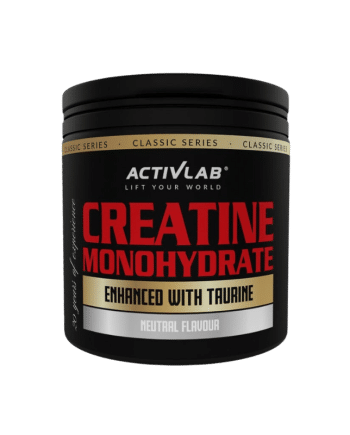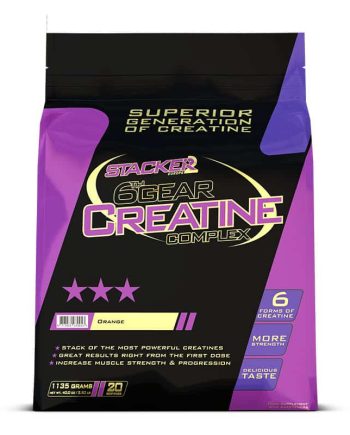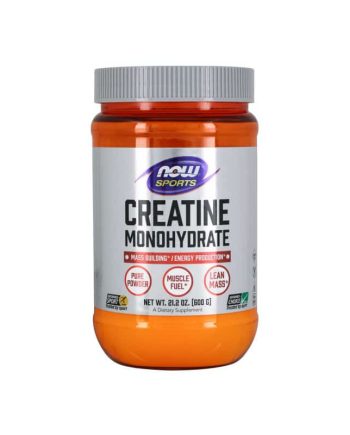When you think of creatine, do you picture a muscular bodybuilder chugging a shake post-workout? If so, it’s time to bust that myth. Creatine isn’t just for gym bros—this powerhouse supplement benefits everyone, including women. Whether you’re looking to crush your workouts, think sharper, or simply feel more energized, creatine might just be what you’re looking for. In this blog, we’ll talk about the benefits of creatine and why women shouldn’t skip this supplement.
What is Creatine and Why Should Women Care?

Creatine is a naturally occurring compound found in your muscles and brain. It’s made from three amino acids—arginine, glycine, and methionine—and plays a key role in energy production. Sometimes your body needs quick energy boost (like during a workout or even while multitasking), and creatine can help by recharging your muscles and cells to produce more of a molecule called ATP, your body’s energy currency.
Why should women care? Because creatine isn’t just about building muscles. It’s about fueling your body and mind to perform at their best. Women are often scared of creatine because of outdated stereotypes. But the truth is, this supplement can support your health and fitness and goals. Whether that’s improving endurance, aiding recovery, or even supporting hormonal health.
The Science-Backed Benefits of Creatine for Women
Boosting Physical Performance: Strength, Endurance, and Recovery
If you’re someone who enjoys working out but sometimes struggles to push through through the workout or recover quickly afterward, creatine can help. By replenishing your energy stores faster, creatine lets you lift heavier, sprint harder, and recover more efficiently.
Creatine supplementation improves strength and muscle endurance, which is key for activities like weightlifting, HIIT workouts, or even long-distance running. And no, you won’t “bulk up” unless you’re specifically training for it. Instead, you’ll notice improved stamina, better workout performance, and lean muscle development.
Creatine and Brain Health: Memory, Focus, and Mental Clarity
Creatine isn’t just for your muscles—it’s also great for your mind. Your brain uses ATP for energy, and since creatine helps boost ATP production, it’s no surprise that it’s linked to cognitive benefits. Research suggests that creatine supplementation can enhance memory, improve focus, and even reduce mental fatigue.
For women juggling work, family, and fitness, this is a game-changer. Imagine being able to power through your to-do list without the dreaded afternoon slump or remembering details more easily during stressful moments. Creatine supports your brain’s energy demands, making it easier to stay sharp and productive.
Improved Energy Levels and Hormonal Support
Feeling drained, especially around certain times of the month? Creatine may help. Hormonal fluctuations throughout your menstrual cycle can impact energy levels and muscle recovery. Studies suggest that women may experience more significant benefits from creatine supplementation during the luteal phase (when energy tends to dip) because of its ability to restore energy and support recovery.
Moreover, creatine can be a supportive ally during menopause. As estrogen levels decline, muscle and bone density can take a hit. Creatine, combined with resistance training, helps counteract these effects by improving muscle strength and energy production.
Reduces Muscle Soreness and Speeds Up Recovery
Another perk of creatine is its ability to reduce post-workout soreness. If leg day leaves you hobbling around for days, creatine might be your new best friend. By minimizing muscle cell damage and inflammation, it helps your body bounce back more quickly, so you can get back to your routine sooner.

How to Use Creatine Safely: Dosing Tips for Women
Adding creatine to your routine is simple, but knowing how to use it effectively is key. Here are some tips to get you started:
- Start with the Basics: Look for a high-quality creatine monohydrate supplement. It’s the most researched and effective form of creatine available.
- Loading Phase (Optional): Some people prefer to “load” creatine by taking 20 grams per day for the first 5–7 days to saturate their muscles. This step is optional; you can skip it and start with a maintenance dose.
- Maintenance Dose: Take 3–5 grams of creatine daily. Consistency is more important than timing, but many people prefer taking it post-workout with a protein shake.
- Hydrate: Creatine draws water into your muscles, so it’s crucial to stay hydrated to avoid cramping or discomfort.
Common Creatine Myths
Let’s address some of the most common misconceptions about creatine:
“Creatine will make me bulky.”
Not true! Creatine aids your muscles to perform better and recover faster, but it won’t lead to significant weight gain or bulk unless paired with specific training and high-calorie intake.
“Creatine causes bloating.”
Some people experience mild water retention initially, but this effect is temporary and usually limited to your muscles (where you want it!).
“Creatine is bad for your kidneys.”
This myth has been debunked by numerous studies. Creatine is safe for healthy individuals when taken as recommended on the packaging or as suggested above. Some people may have pre-existing kidney issues so in that case, consult your healthcare provider first.
Conclusion
Creatine is more than just a fitness supplement—it’s a tool that empowers women to perform, think, and feel better. So, what are you waiting for? With its ability to boost physical performance, enhance brain health, and support hormonal balance, creatine deserves a place in your daily routine.

FAQs
Will creatine make me gain weight?
Creatine might cause a small increase in weight, but it’s due to water being drawn into your muscles, not fat gain. This is part of its muscle-repair process and usually translates to better hydration and performance.
Is creatine safe to take every day?
Yes, creatine is safe for daily use when taken in the recommended dose of 3–5 grams. Long-term studies have shown no harmful effects on healthy individuals.
Should I take creatine if I don’t work out?
Even if you’re not hitting the gym, creatine can support brain health, energy levels, and recovery from everyday activities. It’s particularly beneficial during periods of fatigue or mental stress.



